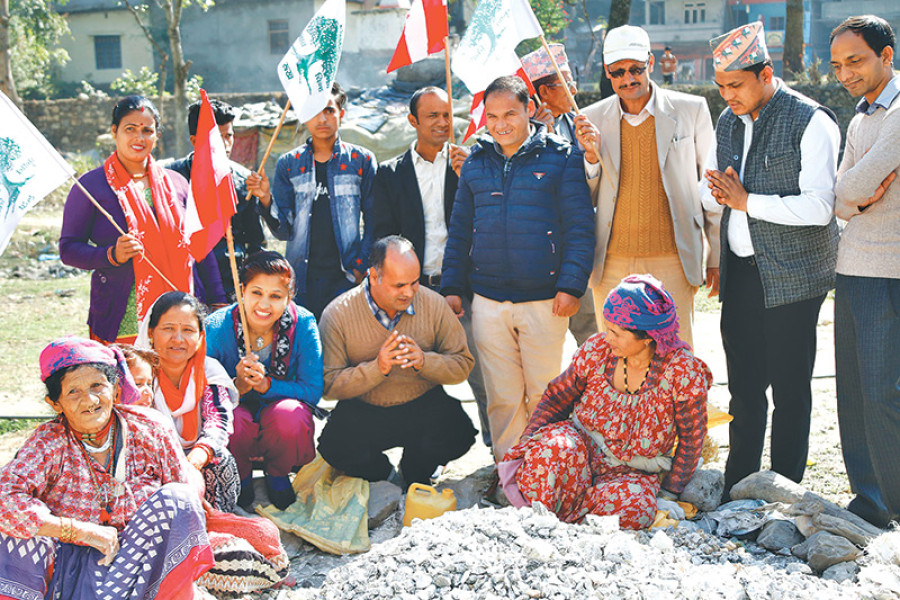National
In Darchula, voters say development matters more than ideology
Darchula in Province 7 is one of the two districts, the other being Taplejung, that shares border with both India and China.
Kamal Dev Bhattarai
Darchula in Province 7 is one of the two districts, the other being Taplejung, that shares border with both India and China. This makes the district a key area from the geostrategic point of view. Kalapani, an area which is disputed between Nepal and India, and Lipulek, through which the two giant neighbours have agreed to expand trade catching Nepal by surprise, fall in this district.
But for locals here, the upcoming elections are more about development rather than the geostrategic role their district plays.
Neither the political parties nor the voters talk about these issues which often draw huge attention in Kathmandu and often become the fodder for political rhetoric.
Locals here, however, share more commonality with people in India than China due to easy access they have to the southern neighbour.
Political parties and voters both say the relations between the people of the two countries—Nepal and India—are so strong and deep-rooted that they would like to leave the “disputed issues” for the “top leadership and the centre” to settle. The Indian town across the border is Dharchula, which almost sounds like Darchula. For the upcoming federal and provincial elections, political parties are reaching out to voters with development agenda such as road, hospital, infrastructure and electricity, steering clear of political issues which they believe could “affect the existing people-to-people relation”.

The district with a population of around 134,000 is a melting pot of various ethnic groups and cultures. The main habitants in the district are Brahmins, Chhettris, Thakuris, Dalits, Lohars, Kaines, Newars, Byanis and Bandeshis among others.
“Development is the major agenda of people here. People are more concerned about development rather than political issues,” said Bishnu Dutta Joshi, a teacher at Darchula Multiple Campus. According to Joshi, people are likely to vote during the elections based on who comes up with development issues rather than going for political ideology. “All they want is development.”
The trend of past elections shows that people have not stuck to the same party. In 1991, Nepali Congress (NC) leader Dilendra Badu had won from the district, but he lost the 1994 elections. But Badu won again in 1999.
In the first Constituent Assembly elections in 2008, peopled voted for Maoist candidate Laxman Dutt. In the second CA polls, CPN-UML’s Ganesh Thagunna won. Anti-incumbency factor seems to be working here. This time the UML and the CPN (Maoist Centre) have formed a left alliance and fielded Ganesh Thagunna as their common candidate. The NC has fielded Bikram Singh Dhami. For the provincial assembly, the NC has fielded Madan Giri and Jagdish Bahadur Pal while the left alliance has fielded Gelbu Singh Bohara (UML) and Man Bahadur Dhami (Maoist Centre).
Locals expect the elections this time will be a two-way race between the Congress and the left alliance.
In its election manifesto, the left alliance has said it would replace the 1950 Nepal-India Treaty. But, the same spirit is hardly reflected among its leaders and cadres here. “The people-to-people relation between the two countries is like that of next door neighbours. People in this area are heavily dependent on India for their day-to-day essentials. So, we will not raise Kalapani, 1950 Treaty or any other issue that could affect locals here.”
“Parties must understand local perspectives before taking decisions about amending the treaty,” said Lalit Prasad Bhatta, a local shopkeeper, adding that parties should rather talk about how Nepalis can have the facility to exchange the banned Indian notes. Not all, however, are of the view that such burning political/ national issues should be ignored during election campaigns.
“This is unfortunate that our leaders do not raise these issues during the electioneering. Such national issues should be the prominent political agenda during the election,” said Joshi of Darchula Multiple Campus. “I have not heard about this agenda in the public meetings of political parties.”




 9.51°C Kathmandu
9.51°C Kathmandu














